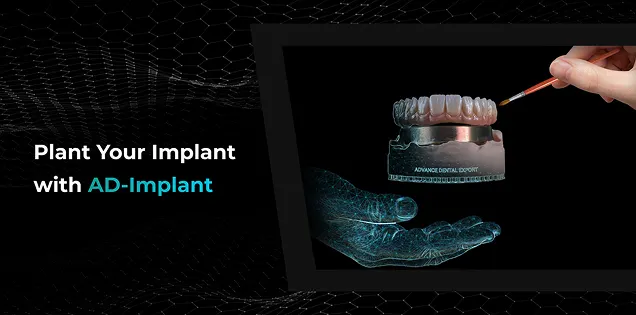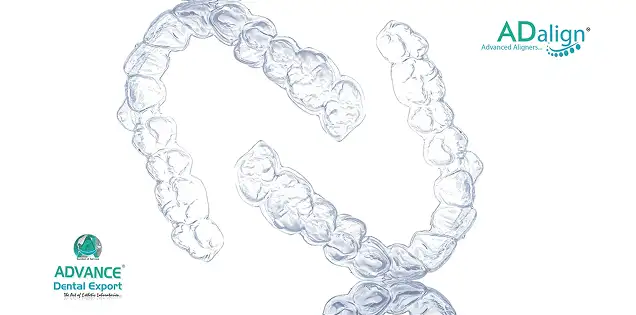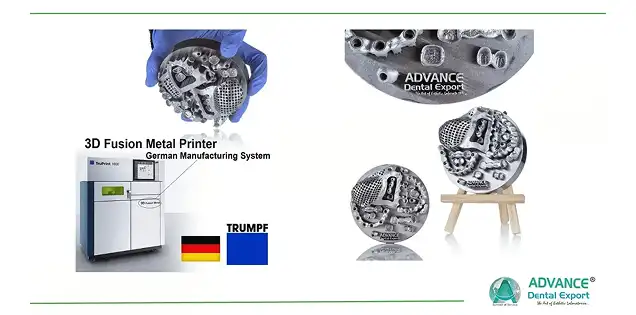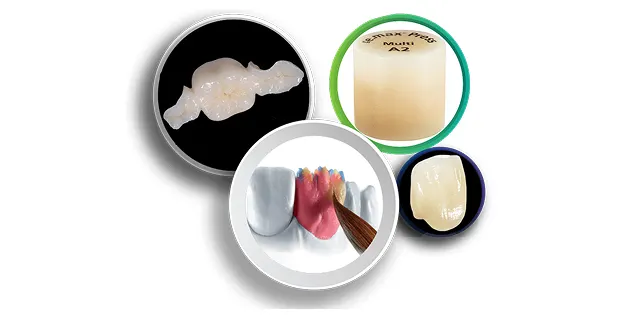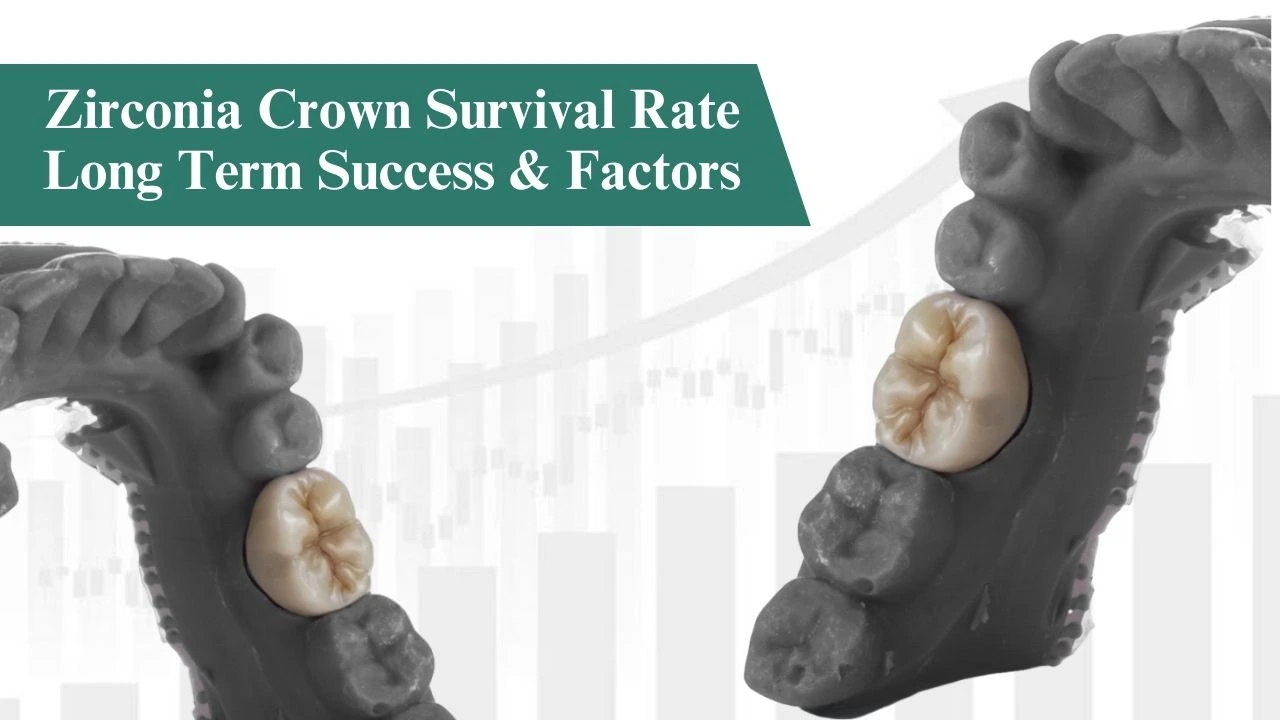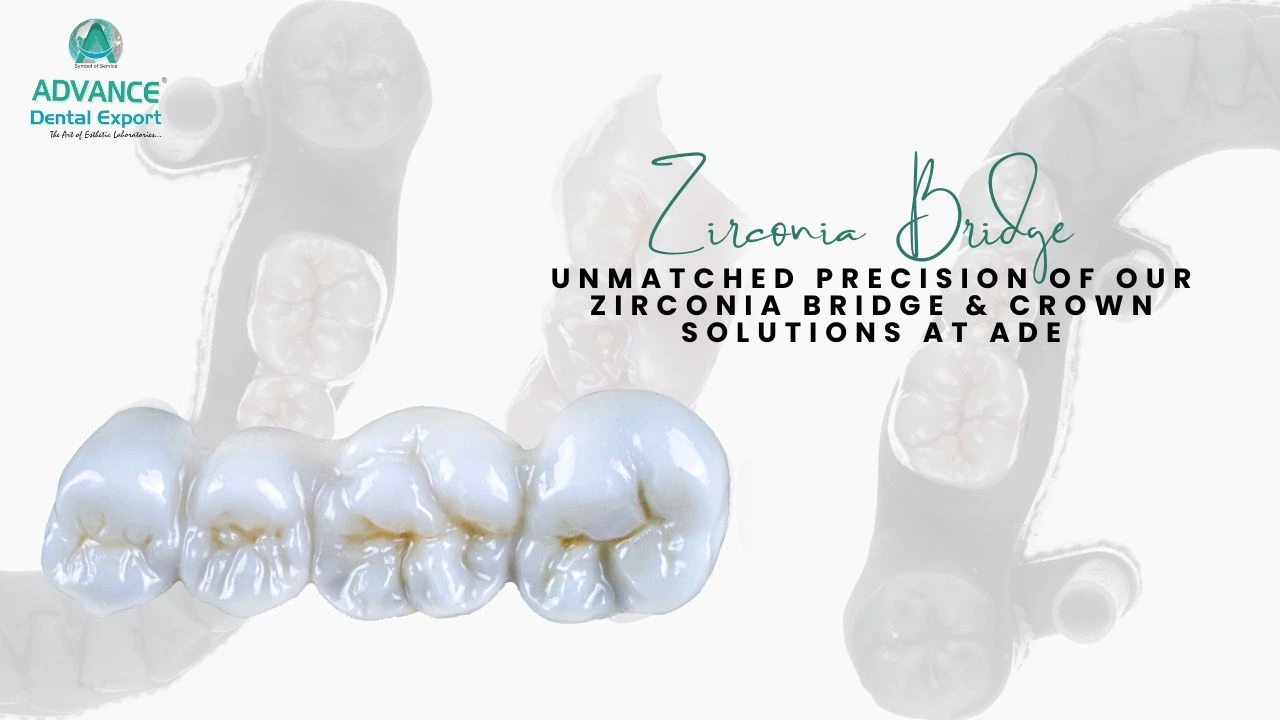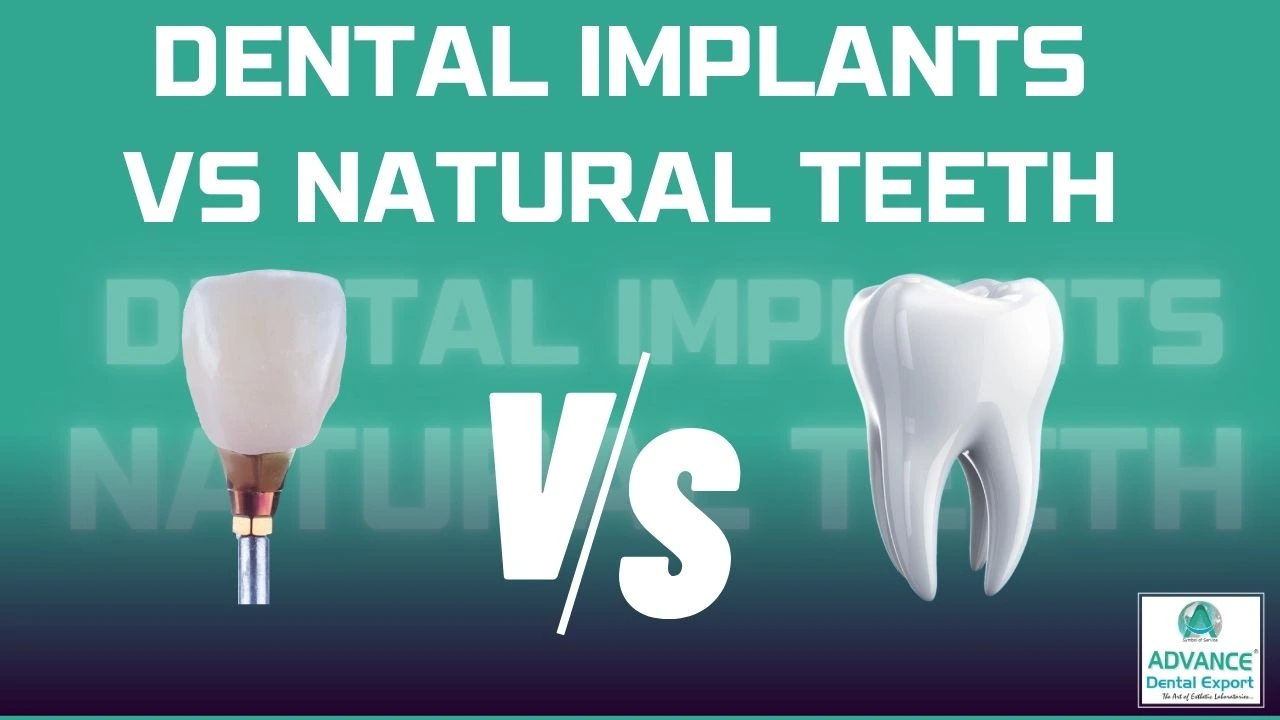A small defect in a tooth, such as a visible crack, an old metal filling, or a discolored tooth, can significantly affect our self-confidence. For years, strong solutions were sought for damaged teeth, but often had to compromise on appearance, such as crowns that looked like metal.
However, modern dentistry has now introduced a wonderful option that offers both strength and beauty: ceramic crown for teeth . These innovative dental crowns promise to restore not only the function of your teeth but also the natural shine of your smile. Ceramic dental crowns are changing the smiles of thousands of people today.
So let’s understand what is a ceramic crown, its benefits in dentistry, and how it differs from other dental crown materials. Along with this, we will also see the approximate cost of ceramic crowns in India.
What are ceramic crowns?
Ceramic crowns are tooth-shaped caps made entirely of ceramic material, used to cover and restore damaged or discolored teeth. They offer superior aesthetics, closely mimicking the natural look and translucency of real teeth, making them a popular choice.
Ceramic crowns are basically all-ceramic, meaning they do not contain any metal. This gives them the same appearance as natural teeth, as light can pass through them just like natural teeth. This is why ceramic for teeth has now become a leading material for improving both the beauty and functionality of teeth.
Rise of Ceramic Crowns for Teeth
Over the past few decades, advances in dental technology have led to the widespread use of ceramic cap tooth. Previously, metal was considered essential for strength, but advances in ceramic material science have made it possible to create extremely strong and durable ceramics. Especially with the advent of high-quality ceramic materials such as zirconia, ceramic tooth crowns are now also suitable for back teeth, where chewing pressure is high.
There are several reasons behind the growing popularity of these ceramic crowns . Patients not only want strong teeth but also a natural and beautiful-looking smile. Ceramic crowns meet both of these needs. Dentists also prefer this material because of its biocompatibility (easy acceptance by the body) and low risk of allergic reactions. As a result, ceramic crowns have become a mainstay in the field of dental restoration today, providing superior solutions for both patients and practitioners.
Benefits of Ceramic Crown
Ceramic crowns are not just limited to repairing damaged teeth; they also significantly improve the aesthetics of your smile and overall oral health. Due to their unique properties, these dental crowns offer several benefits that make them a great choice for both patients and dentists. Let’s understand the main advantages of ceramic crowns in detail:
1. Natural Aesthetics
The biggest advantage of ceramic crowns is their unique natural appearance. They closely resemble the color, translucency, and light-reflecting properties of natural teeth. This means that when the crown is placed in your mouth, it blends in perfectly with the surrounding teeth, making it difficult for anyone to tell you that you are wearing a crown.
Metal-free design: Traditional PFM (porcelain-fused-to-metal) crowns have a metal base that can appear as a black or grey line at the gum line. Since no metal is used in all-ceramic dental crowns, there are no such unpleasant edges, making your smile more natural and flawless. This makes the use of ceramic for teeth very beneficial, especially for front teeth.
Customization: Ceramic crowns are available in different shades and translucency levels, which allows the dentist to create a crown that perfectly matches your natural teeth.
2. Excellent Biocompatibility
Biocompatibility refers to how well the material is accepted by the body and does not cause any adverse reactions. Ceramic crowns are highly biocompatible , which is very important for the health of the patient.
Lack of allergic reactions: For patients with metal allergies, all-ceramic crowns are a safe and optimal option, as they do not use any metals that can cause allergies.
Gum health: Ceramic materials are gentle on gum tissue, reducing the chances of irritation, redness, or swelling in the gums. It helps the gums stay healthy and attached to the crown.
3. Durability and Strength
Modern ceramic crowns, especially those made of high-quality ceramic materials such as zirconia and lithium disilicate (E.max), offer exceptional strength and durability.
Explore Our Restorations
Longevity: With proper care and oral hygiene, ceramic crowns can last 10 to 15 years or more. Their resistance to wear and tear makes them reliable in the long run.
Fracture resistance: Ceramics such as zirconia are strong enough to withstand even heavy chewing pressure, making them suitable for back teeth (molars).
4. Reduced Sensitivity
Metal-based crowns can be thermoconductive (good conductors of heat), which can cause tooth sensitivity when eating hot or cold foods.
Low thermal conductivity: Ceramic crowns have low thermal conductivity, which means they insulate the tooth pulp better from sudden changes in heat and cold. This reduces sensitivity after the crown is placed and provides greater comfort to the patient.
In short, ceramic tooth crowns are not just a dental treatment, but an investment in the beauty, health, and confidence of your smile. Their strength, natural appearance, and biocompatibility make them the best ceramic tooth cap option.
Types of Ceramic Crown Materials
Ceramic crowns are a broad group of all ceramic restorations in dentistry, meaning they do not use any metal. However, the term “ceramic” does not refer to a single material, but rather covers many different types, each with its own unique characteristics and uses. Understanding this diversity is important in choosing the best ceramic cap for teeth. Let’s take a closer look at the main types:
Zirconia
Zirconia , also known as Zirconium Dioxide, is an extremely strong and durable ceramic material. Due to its exceptional strength, it is also known as “ceramic steel.”
Strength and durability: Zirconia is one of the strongest dental ceramic materials ever made. It can withstand heavy chewing pressure and is less likely to break or chip. This makes it ideal for the back teeth (molars and premolars), where chewing forces are highest.
Aesthetics: Early zirconia appeared opaque, but modern zirconia is available in many more transparent options that blend better with the appearance of natural teeth. In layered zirconia crowns, a layer of aesthetic porcelain is fused over a strong zirconia core, providing both strength and beauty.
Biocompatibility: Zirconia is highly biocompatible, meaning it is easily accepted by the body and the risk of allergic reactions is negligible. Explore the detailed Zirconia crown guide here.
Uses: An excellent choice for single crowns, dental bridges, crowns on dental implants , and teeth after root canals.
Porcelain
Dental porcelain is the most traditional type of ceramic crown known for its aesthetics.
Aesthetics: Porcelain is popular because of its natural tooth-like appearance and light-reflecting properties. It beautifully matches the color and translucency of teeth, making it a popular choice for front teeth.
Limitations: Porcelain is not as strong as zirconia and is more susceptible to chipping or breaking, especially under heavy chewing pressure. Compare PFM vs zirconia crowns here.
Uses: Primarily for front teeth where aesthetic appearance is paramount, and chewing pressure is relatively low. It is also often used as an aesthetic layer over a metal core in PFM (porcelain-fused-to-metal) crowns.
Lithium Disilicate - Emax
Lithium disilicate, better known by the brand name " Emax ", is a glass-ceramic material that offers an excellent balance of aesthetics and strength.
Balance of aesthetics and strength: While not as strong as zirconia, Emax crowns are significantly stronger than porcelain and have excellent translucency and a natural appearance. This makes them suitable for both front and back (relatively less stressed) teeth.
Attractive appearance: Due to their high translucency and wide range of shades, E.max crowns blend beautifully with natural teeth, giving a very aesthetic result.
Minimal tooth removal: E.max crowns require less tooth structure to be removed, as they are thin yet strong.
Uses: Ideal for single crowns or small bridges , veneers, inlays/onlays restorations.
These different types of ceramic crowns help the dentist choose the best ceramic toothcap based on the patient’s needs, tooth location, and aesthetic expectations.
Ceramic Dental Cap Price in India
When considering aesthetic and functional tooth restorations like ceramic crowns, the cost is a major factor for patients. The cost of ceramic teeth in India depends on various aspects and can vary significantly. To get an estimate of how much a ceramic crown tooth costs, it is important to understand the following factors:
Type of Ceramic Crowns
The type of material plays the biggest role in determining the cost of a crown. As we saw earlier, ceramic crowns include zirconia, lithium disilicate (E.max), and traditional porcelain.
Location and Reputation of the Clinic
The geographical location of the dental clinic directly affects the cost of ceramic crowns.
Dentist’s experience and expertise
Experienced and reputable dentists, especially prosthodontists (specialists in tooth restoration), may charge higher fees due to their expertise and assurance of superior results. However, their services are generally more reliable and of higher quality.
Additional procedures
Some additional dental procedures may be required before a ceramic dental crown is placed, which can increase the total cost.
Average Cost of Ceramic Crowns in India
Porcelain crowns: These are relatively less expensive, but may be less durable. They can cost around ₹4,000 to ₹12,000+ per crown.
Lithium disilicate (E.max) crowns: These fall into the middle range, offering a good balance of beauty and strength. They are typically priced from ₹12,000 to ₹25,000+ per crown.
Zirconia crowns: As the strongest and most durable ceramic type, zirconia crowns are typically the most expensive. They can cost anywhere from ₹10,000 to ₹35,000 or more per crown, depending on their quality and level of translucency.
Are Ceramic Crowns Worth the Investment?
A ceramic crown tooth cost may seem a bit high at first, but its long-term benefits, such as excellent aesthetics, durability, biocompatibility, and a confident smile, make it a worthwhile investment. The final ceramic dental cap price depends on the condition of your teeth and the material chosen. Therefore, it is always advisable to discuss it in detail with your dentist or dental laboratory to get the best estimate.
Looking for a trusted lab partner? Get high-precision restorations from Advance Dental Export
Conclusion
In this guide, we delve into the world of ceramic crowns. We see how ceramic dental crowns have emerged as a leading solution in modern dentistry to restore damaged teeth and improve smile aesthetics. Their various types – such as strong zirconia, beautiful porcelain, and balanced lithium disilicate (E.max) – facilitate the patient to make the best choice as per their needs.
Ceramic crowns offer numerous clinical advantages: including natural aesthetics, improved gum health through metal-free design, excellent biocompatibility, and significant durability depending on the selected material. These properties make them not only the long-term functionality of the tooth but also directly influence patient satisfaction and a confident smile.
Factors related to ceramic teeth cost, such as the type of crown material , location of the clinic, and the expertise of the dentist, should be clearly discussed in the consultation with the patient. A transparent description of ceramic crown tooth cost or ceramic dental cap cost strengthens the patient’s confidence and helps in the treatment decision-making process. The initial investment of these restorations, due to their long-term clinical outcomes and aesthetic value to the patient, can be considered reasonable.
In conclusion, understanding all-ceramic teeth crown technology and implementing it properly in clinical practice is essential for modern dental practitioners. A detailed knowledge of the properties of the material, its clinical uses, and its cost in India will help in providing the best treatment options to the patients and successfully progressing their practice.
FAQs related to Dental Ceramic Crown
What is a ceramic crown?
A Ceramic crown is a dental crown made entirely of ceramic material, with no metal used. It closely resembles the appearance, translucency, and color of natural teeth, and is an excellent option for patients with metal allergies. Zirconia and lithium disilicate (E.max) are popular types of ceramic crowns.
What is the cost of a ceramic crown?
The cost of ceramic crowns in India depends on many factors, their cost can generally range from ₹4,000 to ₹35,000 or more per crown. This cost mainly depends on the type of ceramic material chosen. In addition, the location of the clinic, the experience, and expertise of the dentist, as well as any additional procedures required before the crown is placed, also affect the total ceramic crown tooth cost or ceramic dental cap cost.
Is a ceramic cap good for teeth?
Yes, a ceramic cap (also known as a ceramic crown) is generally an excellent choice for teeth. They're highly valued in modern dentistry because they perfectly match the look of natural teeth, are well-tolerated by the body (meaning no metal allergies or gum irritation), and don't create those dark lines sometimes seen with metal-containing crowns. Plus, modern ceramics like zirconia are very strong and durable, capable of lasting many years with proper care while offering superior aesthetics.
How long do ceramic dental crowns last?
Ceramic dental crowns typically last an average of 10 to 15 years, but with excellent oral hygiene, regular dental check-ups, and proper care, crowns made of particularly strong materials such as zirconia or lithium disilicate (E.max) can last up to 20 years or more. The lifespan of a crown depends on factors such as its type, the location of the tooth, your teeth grinding habits (bruxism), and the precise placement performed by the dentist.
What are the key benefits of ceramic teeth crowns?
Among the main advantages of ceramic teeth crowns (or ceramic dental crowns) is their unique natural aesthetics, as they blend perfectly with the color and transparency of natural teeth and do not leave a dark line on the gum line as they contain no metal. In addition, they are highly biocompatible, which means that the body easily accepts them and avoids the risk of metal allergies. Modern ceramics, especially zirconia, are very strong and durable, which last a long time, and also reduce tooth sensitivity due to their low thermal conductivity.

